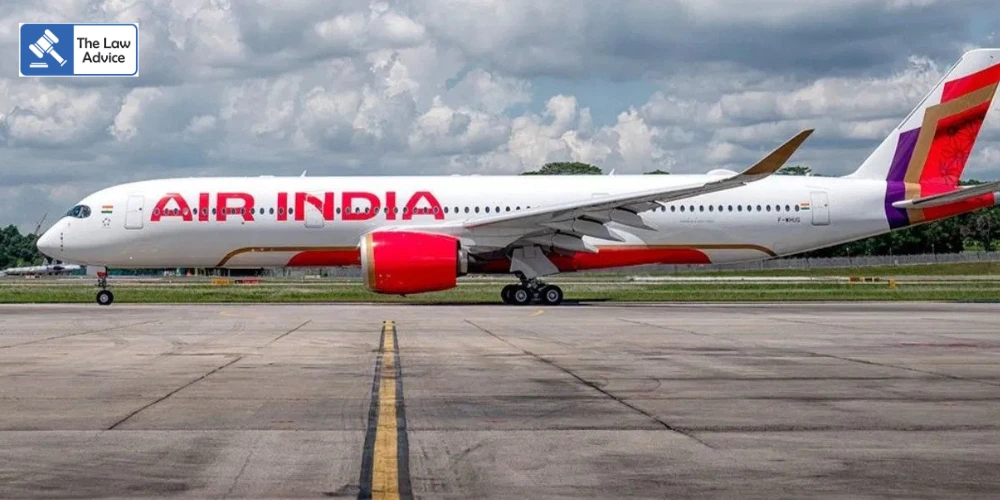The Supreme Court on Monday sharply criticised the selective leak of the preliminary inquiry report into the Air India Flight AI171 crash, which triggered widespread media narratives attributing the tragedy to pilot error.
Calling such leaks “unfortunate,” the Court underscored that absolute confidentiality must be maintained until the official inquiry concludes, warning that piecemeal disclosures risk distorting facts and undermining public trust.
On June 12, 2025, Air India Flight AI171 crashed shortly after take-off from Ahmedabad Airport, killing 260 people onboard. The horrific accident sparked public outrage and a wave of petitions seeking accountability for possible regulatory lapses and systemic safety failures.
The matter came up before a Bench of Justices Surya Kant and N. Kotiswar Singh on a public interest litigation (PIL) filed by the Safety Matters Foundation, an aviation safety NGO led by Capt. Amit Singh FRAeS.
Senior advocate Prashant Bhushan, appearing for the petitioners, argued that the official investigation was compromised by conflicts of interest, given that three of the five investigators were serving officers of the Directorate General of Civil Aviation (DGCA)—an agency whose own regulatory oversight was under scrutiny.
Bhushan also demanded disclosure of the Digital Flight Data Recorder (DFDR), Cockpit Voice Recorder (CVR) transcripts, and Electronic Aircraft Fault Recording (EAFR) data, claiming these were being withheld.
Justice Kant, while acknowledging the need for transparency, cautioned against premature disclosure:
“It’s not advisable to release such data at this stage. Confidentiality is the most important thing in these matters.”
Bhushan highlighted how the international media seized upon a cryptic line from the preliminary report, suggesting that a pilot had asked another why fuel was cut off. This fragment, he argued, was used to create a global narrative blaming the pilots.
Justice Kant agreed:
“That was very unfortunate. Instead of piecemeal leaking of information, confidentiality should be maintained until the inquiry reaches its logical conclusion.”
The Court also remarked that sensational speculation unfairly damages reputations:
“When this kind of tragedy happens, one airline is blamed, while manufacturers like Boeing or Airbus escape scrutiny. Such reports are very irresponsible.”
Bhushan further pointed out that publications such as the Wall Street Journal had already blamed the senior pilot—even before the preliminary report was officially released. Some outlets even suggested a suicidal motive, which he termed a “ridiculous story.”
The PIL alleges that the Aircraft Accident Investigation Bureau (AAIB), in its July 12, 2025 preliminary report, wrongly suggested pilot error by stating that fuel cutoff switches were moved from RUN to CUTOFF.
The petition contends that the report ignored or downplayed systemic anomalies, including:
• documented fuel switch defects,
• electrical malfunctions,
• ram air turbine (RAT) deployment, and
• electrical disturbances preceding the crash.
According to the petitioners, this selective attribution violated Annex 13 of the Chicago Convention, which requires aviation accident investigations to be independent, impartial, and prevention-focused.
The PIL also raises constitutional claims, arguing that a biased and selective inquiry into such a disaster violates:
• Article 21 (right to life, safety, and dignity),
• Article 14 (equality before law), and
• Article 19(1)(a) (right to truthful information).
At the close of the hearing, the Supreme Court issued notice to the Union of India and other respondents, but limited it to the prayer for ensuring a “free, fair, impartial, expeditious and independent investigation by an expert body.”
The Bench, however, declined to order immediate disclosure of the black box data, citing risks of misinformation and premature conclusions.
• Another PIL before the Supreme Court seeks suspension of Air India’s Boeing fleet pending safety audits.
• Two doctors have written to the Chief Justice of India seeking suo motu action, early disbursement of compensation to victims’ families, and a transparent investigation.
• In August 2025, a separate PIL calling for an independent probe into Air India’s maintenance and safety checks was dismissed as withdrawn, though liberty was granted to file an appropriate writ later.
Case Title: Safety Matters Foundation v. Union of India & Ors.
Diary No.: 53715/2025
